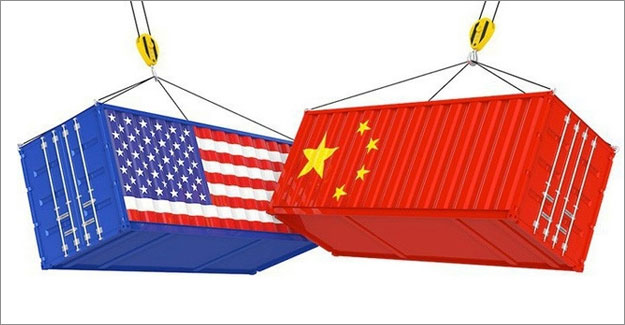
Signs Of Peace In The US-China Trade War
An end to the US-China trade war may be imminent. Both governments are now optimistic that an agreement can be worked out, and US President Donald Trump and Chinese President Xi Jinping can close the deal at a "signing summit" in a few weeks. While the end to the trade war is to be welcomed, it is hard to be optimistic about the possible deal, if reporting of its contents is accurate. There is little disagreement with the claim that China is an unfair trader, using the leverage of its mammoth domestic market to extract concessions such as technology transfer from companies that seek to do business there or tilting the market to favour homegrown competitors. The Trump administration has sought to level that playing field primarily through the use of tariffs on Chinese exports to the United States. Last year Trump imposed tariffs of 10% on some US$ 200 billion in Chinese goods and threatened to increase them to 25% if the two governments could not reach a deal that rebalanced bilateral trade - China currently has a surplus with the US that exceeds US$ 400 billion. That increase was scheduled to take place March 1 but Trump postponed that move to give negotiators more time to wrap up the talks. He tweeted that there had been "substantial progress in our trade talks with China on important structural issues including intellectual property protection, technology transfer, agriculture, services, currency, and many other issues." Noting that "we're getting very, very close," the US president said that he expected to host Xi for a signing summit at his Mar-a-Lago estate "fairly soon." China's Xinhua news agency appeared to agree, reporting that both countries are "closer to reaching a mutually beneficial and win-win agreement." While markets rejoiced at the news, posting gains in the aftermath of the reports, there is ambivalence among experts. So far, no details of the talks have been released and there is concern, especially among his hard-line supporters, that Trump will settle for minor concessions to claim a win, rather than the structural reforms that are needed - and which China is very reluctant to make. It is widely believed, for example, that China is ready to make large purchases of soybeans and liquefied natural gas to help rebalance the trade accounts. Beijing has also reportedly urged the US to reroute supply chains so that products such as semiconductors go from plants in the US directly to China, rather than via Southeast Asia or Mexico (where they are tested), a change that will impact trade accounting but have no real effect on trade flows - except to hurt countries that currently test the chips. It is also worrisome that the US is urging China to manage its currency to prevent excessive depreciation. While currency stability is a laudable goal, it is dangerous to agree to government manipulation of the market. Perhaps even more alarming is Trump's comment that he is prepared to intervene in judicial proceedings against Huawei, the Chinese telecommunications company whose chief financial official is being held in Canada pending extradition to the US on charges of bank and wire fraud, violations of US sanctions on Iran and conspiracy to obstruct justice. That sort of action completely undercuts the complaint by the US, other governments and human rights groups that the rule of law requires an independent judiciary and not one subservient to the needs or whims of political elites. Trump's turnaround has been prompted by weakness in the US market, which he has used as one of the most important benchmarks of the success of his administration. After the Democratic Party's victory in November's midterm elections, Trump is also concerned about shoring up his support as the 2020 presidential race begins. He wants to expand trade opportunities for important constituencies, such as farmers, and getting the Chinese to drop tariffs they imposed on US goods in the aftermath of his decision to do so, is a quick way to achieve that. (The Japan Times)
Textile Excellence
If you wish to Subscribe to Textile Excellence Print Edition, kindly fill in the below form and we shall get back to you with details.












